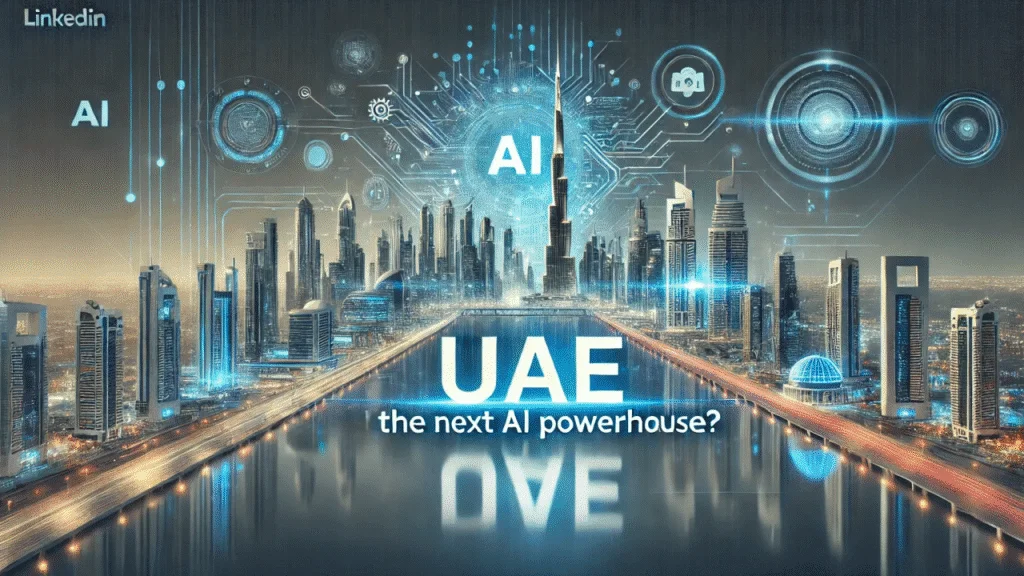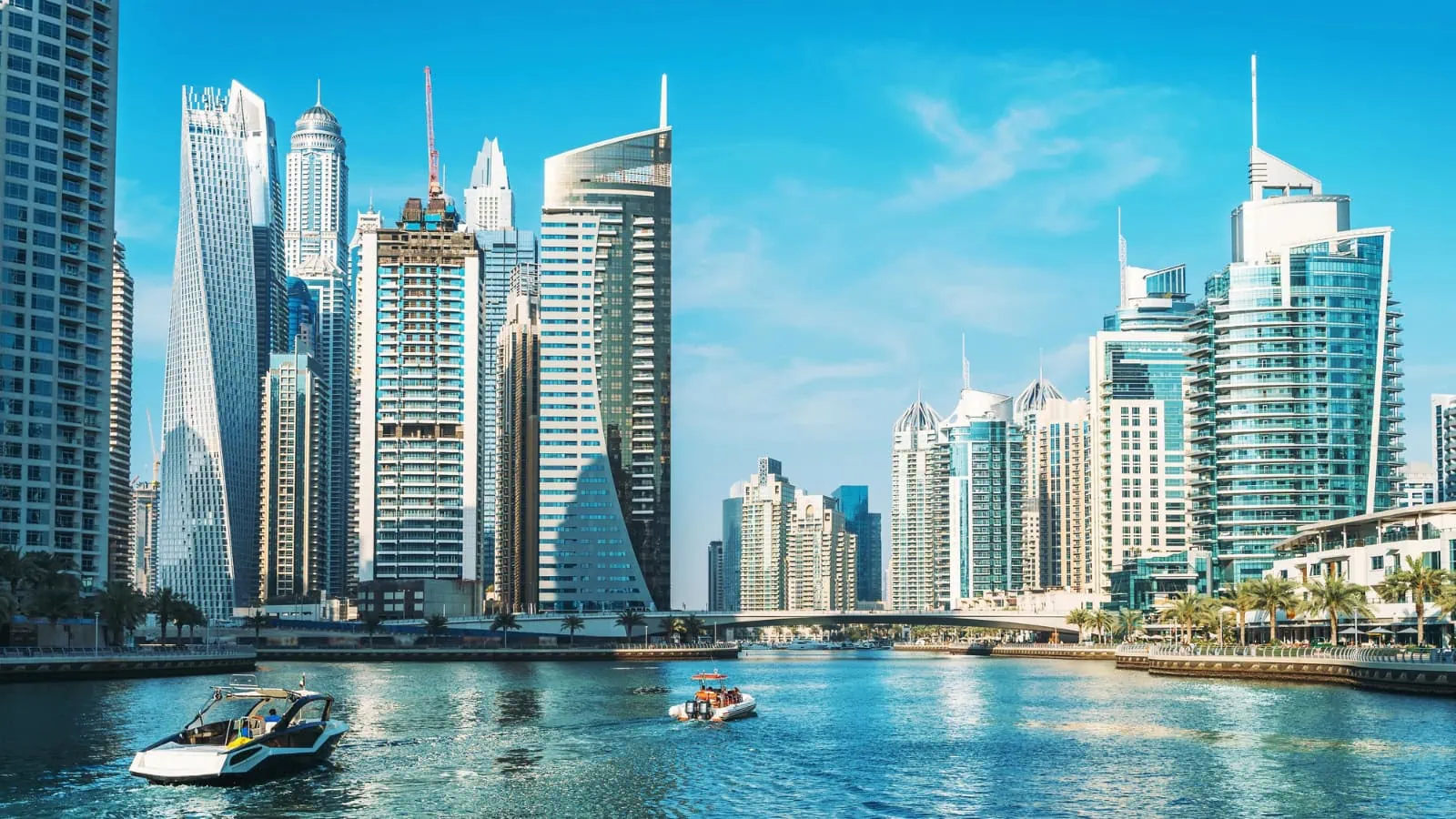Now Reading: “Dubai’s Bold AI Projects Are Reshaping Hospitals, Schools, and Government Services!”
-
01
“Dubai’s Bold AI Projects Are Reshaping Hospitals, Schools, and Government Services!”
“Dubai’s Bold AI Projects Are Reshaping Hospitals, Schools, and Government Services!”

Table of Contents
Dubai has always been a city of the future. Known for its sky-high buildings, luxury lifestyle, and smart city plans, Dubai is now setting new standards with artificial intelligence (AI). The government is investing heavily in AI projects that are transforming healthcare, education, and public services across the city. These projects aim to make life easier, safer, and smarter for its residents and visitors.
AI in Healthcare: Faster, Safer, and Smarter Medical Services

One of the most exciting uses of AI in Dubai is in the healthcare sector. The Dubai Health Authority (DHA) has launched several smart initiatives that use AI to improve patient care and hospital services.
For example, AI-powered chatbots are now helping patients book doctor appointments, receive health advice, and check medical records—all in real time. These virtual assistants are available 24/7, reducing the waiting time for basic health queries.
Additionally, hospitals in Dubai are using AI to assist doctors in diagnosing diseases like cancer, diabetes, and heart problems. AI systems can analyze medical scans much faster than humans, helping doctors to detect issues early and start treatment sooner. This can save lives and reduce the pressure on medical staff.
One recent project is Dubai’s “AI Lab for Health,” where researchers are developing smart tools that predict possible health risks based on patient data. This could lead to more personalized treatments, as AI suggests the best care plan for each person based on their unique health profile.
Telemedicine platforms powered by AI are also growing fast. During the COVID-19 pandemic, these platforms proved highly useful, allowing patients to consult with doctors remotely. Now, they continue to serve as an easy, safe way to get medical help without going to hospitals.
AI in Education: Smarter Classrooms and Personalized Learning

Dubai is also using AI to reshape its education system. The goal is to create “smart classrooms” that use technology to make learning more fun, interactive, and tailored to each student.
Some schools and universities in Dubai are using AI-driven learning platforms that adjust the content based on a student’s performance. For example, if a student struggles with math, the system will offer extra exercises or simpler explanations to help them improve. This personalized learning helps students progress at their own pace, boosting confidence and understanding.
AI-powered virtual teachers and tutors are also becoming popular in Dubai’s schools. These virtual assistants can answer student questions, explain tough subjects, and even grade assignments. They make learning available anytime, anywhere—even after school hours.
In higher education, universities in Dubai are using AI to predict which students might face difficulties and offer them help before they fall behind. AI can analyze data such as attendance, test scores, and participation to find students who may need extra support.
Furthermore, Dubai is investing in training its teachers in AI tools. This ensures that educators can make the best use of new technologies in the classroom, creating a balance between human teaching and machine assistance.
AI in Public Services: Making Dubai a Truly Smart City
Dubai’s dream to become the world’s smartest city is closer to reality thanks to AI-powered public services. Government offices, police departments, and transport authorities are all introducing AI to serve people better.
For example, the Dubai Police has introduced AI-driven surveillance systems that help monitor traffic, detect crimes, and even predict possible criminal activities. Smart cameras and sensors collect data in real-time, allowing the police to respond quickly to incidents.
Dubai’s transport system is also becoming smarter with AI. The Roads and Transport Authority (RTA) uses AI to manage traffic lights, control public buses, and plan metro schedules. This helps reduce traffic jams and improves travel time for everyone in the city.
In government offices, AI chatbots are helping citizens complete tasks like applying for visas, renewing licenses, and paying bills. These services save people time by reducing the need to visit offices in person.
Dubai also launched the “Dubai AI Lab,” where public and private organizations work together to develop new AI solutions for public services. This lab aims to make government processes faster, simpler, and more transparent for citizens.
Another exciting project is the use of AI to predict and manage water and electricity needs. Smart grids powered by AI can balance the city’s energy use, reduce waste, and ensure that resources are always available when needed.
Challenges and the Road Ahead

While these projects are impressive, they also come with challenges. Privacy and data security are big concerns. The Dubai government has promised to protect people’s personal information and ensure that AI systems are safe and fair.
Another challenge is making sure that everyone—young or old, rich or poor—can benefit from AI-powered services. Dubai is working hard to train its people, including government workers, doctors, teachers, and students, so that they can use AI tools effectively.
The city also plans to create more AI-related jobs, supporting the tech industry and helping its economy grow.
Conclusion: A Bright AI Future for Dubai
Dubai’s AI projects are changing the way people live, work, and learn. Healthcare is becoming faster and smarter, education is turning more personalized, and public services are more efficient than ever.
As AI continues to grow, Dubai is set to become a global leader in smart city technology. Its bold investments in AI will not only benefit its own citizens but may also serve as a model for other cities around the world.
In the coming years, Dubai’s AI journey is likely to bring even more amazing changes—making life better for everyone who lives in or visits this future-ready city.
Read More:- Shobha Realty Launches Its Most Luxurious Project Yet—Full Details Inside 2025



















